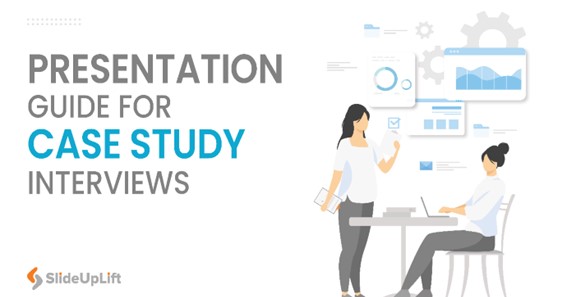A case interview is a job interview where you’re given specific business problems to solve. However, case interviews aren’t only for consultants anymore. It can be challenging to interview finance or business operations professionals as well.
No matter how charming you are, airy or ambiguous answers will not score you any marks in case interviews. Analytical thinking, original problem-solving, and data-driven reasoning are desired qualities in interviewees.
To succeed in a case interview, what do you need to know? Read on.
Case Study Interview Issues
Case interview questions are the core of case interviews. Yet, unlike standard interview inquiries like “Tell me about yourself” or “What are your strengths and weaknesses?” Usually, you will be given a business problem before being asked to propose a solution. Brainteasers are absurd questions that test your ability to think logically.
Formats for Case Interviews
All case interviews begin with a question, but how you respond to it will completely depend on the style of the interview. Here are some typical formats for case interviews:
Candidate-Led: You will be required to guide them through arriving at an answer step-by-step in these case interviews.
Presentations: You will be given a problem for presenting case interviews, and you will then be required to present your answer in a deck. This enables you to delve into much more detail, so do thorough research and reference it in your presentation.
Create a lasting impression with SlideUpLift’s vast repository of Free PPT Templates and Google SlidesTemplates to help save time in building presentations.
Video: In scarce circumstances, a corporation could prefer you do a case interview by video before conducting one in person. A video response to a case interview topic can be recorded and submitted using video conference software like Skype or Zoom.
Things to keep in mind before the Case Interview
You may do several things before a case interview to guarantee success. In the days before the interview, be sure to do the following:
Research
Make sure to study as much as possible if the question has been provided to you.
Recognize frameworks
In case interviews, you might be asked a question with such a broad scope that your response will seem drawn out and meandering if you aren’t cautious. Because of this, the key to succeeding in a case interview is creating a problem-solving structure or framework. Many theoretical frameworks exist, such as 3Cs, 4Ps, Porter’s Five Forces, pricing frameworks, etc.
Look at some of the most popular frameworks, and consider how you may use them in a specific circumstance. You should use such frameworks in interviews rather than memorizing and repeating them. Individuals should be able to draw on current theory to develop a distinctive framework for resolving an issue.
Practice
While preparation and expertise are essential for a case interview, they only go far. People don’t often express their internal thinking processes. Thus your explanation is less likely to be understandable if you don’t prepare before your interview. Even if you don’t have time and money to work with a career coach, asking a friend or family member for help could make a big difference.
Come prepared
Bring a notepad, a watch, and a calculator if you need to do any math before leaving for the interview. You must not do any of these tasks using your smartphone since it gives the wrong impression to interviewers.
At the Case Interview
Do you need some pointers on how to respond most effectively? Remember this advice.
Pose inquiries
It’s okay to seek more information to assist you in understanding and guiding your strategy, so don’t be afraid to do so during interviews.
Consider case interviews more like a conversation with your interviewer than an exam you must do on your own. Maintain the interviewer’s interest by asking questions about your structure and approach.
Be assured
Keep in mind that if you don’t have confidence in your answer, neither will the interviewers. Any unease, doubt, or irrational thinking will not favor the interviewee. The interviewee will benefit most from one’s ability to be forceful and decisive with the capacity to back up findings.
Your body language should also convey confidence along with your voice. Aside from effective body language, open-faced hand gestures and eye triangulation should also be used.
Consider Questions
The interviewer will ask you probing questions about your strategy, and you must be prepared to answer them. Several “why” questions should be prepared by candidates. Ask yourself, “Why are you selecting that specific approach?” “What other approaches might you consider? What makes this one the greatest, in your opinion?” Candidates must provide a detailed explanation of how they think.
To Sum Up
Research and preparation are crucial if you don’t want to sound like you’re just repeating case studies or frameworks you’ve seen in a book. The MOST crucial advice we can provide is always to be true to who you are. Declare your intentions with assurance. The firm is interviewing you because they think you have promise. So, be sure to provide your viewpoint constantly.







